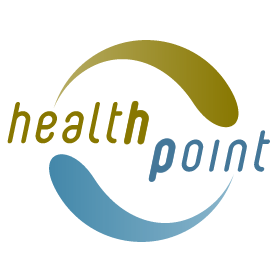North Auckland > Public Hospital Services >
Orthopaedic Services | Waitematā | Te Whatu Ora
Public Service, Orthopaedics
Description
Consultants
-
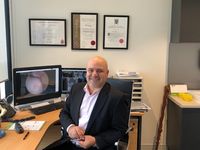
Mr Ali Bayan
Trauma, Arthroplasty, Soft Tissue, Knee, Foot and Ankle Surgery
-

Mr Clayton Chan
Trauma, Spine, Arthroplasty and Revision Surgery
-
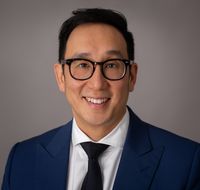
Mr Anthony Cheng
Orthopaedic Surgeon - Hand & Wrist Surgery & Peripheral Nerve Injuries
-
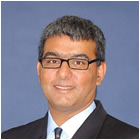
Mr Simon Chinchanwala
Hand & Wrist Surgery, and Peripheral Nerve Injuries
-
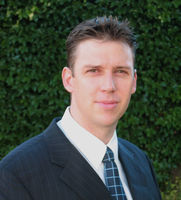
Mr Tony Danesh-Clough
Trauma, Arthroplasty Surgery, Foot and Ankle Surgery
-
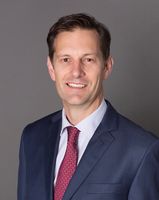
Mr Robert Elliott
Trauma, Arthroplasty, Shoulder Surgery
-
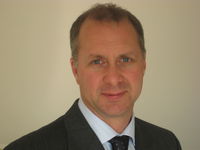
Mr Bill Farrington
Trauma, Arthroplasty Surgery
-
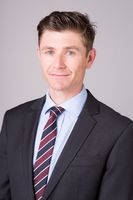
Mr Phillip Insull
Spine Surgery
-
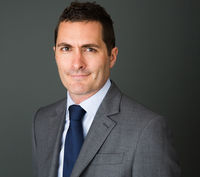
Mr Peter Misur
Trauma, Arthroplasty Surgery, Hip & Knee Surgery
-

Mr Peter Mutch
General Orthopaedic, Shoulder, Knee and Hand Surgery
-
Mr Peter Poon
Trauma, Shoulder and Elbow Surgery
-
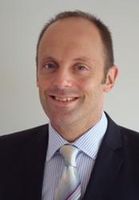
Mr Dean Schluter
Trauma, Knee Surgery, Foot and Ankle Arthroplasty, Revision Hip and Knee Surgery
-
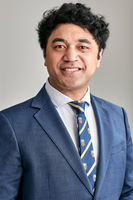
Mr Joshua Sevao
Hand & Wrist Surgery
-
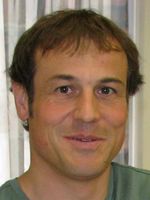
Mr Rob Sharp
Trauma, Arthroplasty Surgery
-
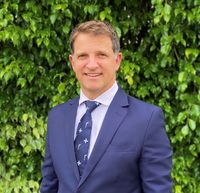
Mr Eric Swanton
Foot and Ankle Surgery
-
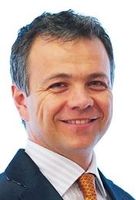
Mr Rupert Van Rooyen
Trauma, Arthroplasty Surgery
-
Mr Matt Walker
Trauma, Arthroplasty Surgery, Soft Tissue Surgery, Knee Surgery - Clinical Director
-
Mr Edward Yee
Trauma, Spinal Surgery, Foot and Ankle Surgery
-
Mr Albert Yoon
Hand & Wrist Surgery
-
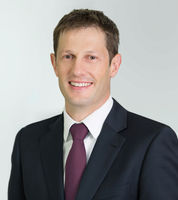
Mr Simon Young
Trauma, Shoulder Surgery, Knee Surgery
Referral Expectations
Your GP will send us a letter explaining your condition. If you meet the criteria for acceptance to the service an appointment will be made for you, and sent directly to you. Based on the information in your doctor's letter, patients with more serious conditions will be seen earlier.
You will be seen in the outpatient clinic by a specialist doctor who will discuss treatment options with you.
You need to bring with you:
- Any letters or reports from your doctor or other hospital.
- Any X-Rays, CT or MRI films and reports.
- All medicines you are taking including herbal and natural remedies.
- Your pharmaceutical entitlement card.
- Your ACC number, if you have one.
Procedures / Treatments
These clinics are run by the Orthopaedic Department for patients who have sustained an injury that has already been treated, and a further follow-up of that injury is required. Often at these fracture clinics x-rays are taken on arrival. Although an appointment time is given, the time to have x-rays, casts removed, and other treatments started may take some time.
These clinics are run by the Orthopaedic Department for patients who have sustained an injury that has already been treated, and a further follow-up of that injury is required. Often at these fracture clinics x-rays are taken on arrival. Although an appointment time is given, the time to have x-rays, casts removed, and other treatments started may take some time.
These are clinics for patients who have been referred by their doctor for an orthopaedic opinion on a specific problem. These clinics are attended by a specialist orthopaedic surgeon who will be available to advise on diagnosis and management. Often at the clinics x-rays will be taken and sometimes other investigations will be arranged to help in confirming the diagnosis and best management of the problem.
These are clinics for patients who have been referred by their doctor for an orthopaedic opinion on a specific problem. These clinics are attended by a specialist orthopaedic surgeon who will be available to advise on diagnosis and management. Often at the clinics x-rays will be taken and sometimes other investigations will be arranged to help in confirming the diagnosis and best management of the problem.
These are clinics which specialise in treating specific parts of the body or specific conditions. Examples of these will be an orthopaedic tumour clinic or a spinal clinic. Here the patients with specific problems are seen by the appropriate doctors and support staff for their special needs.
These are clinics which specialise in treating specific parts of the body or specific conditions. Examples of these will be an orthopaedic tumour clinic or a spinal clinic. Here the patients with specific problems are seen by the appropriate doctors and support staff for their special needs.
For elderly patients, joint replacement surgery is commonly required to treat joints damaged from arthritis or other forms of joint disease including rheumatoid arthritis. In these procedures the damaged joint surface is removed and replaced with artificial surfaces which may be metal, ceramic or plastic. These operations are major procedures which require the patient to be in hospital for several days, followed by a period of rehabilitation at home. Occasionally blood transfusions are required. If you have some concerns raise these with your surgeon during consultation. Waitematā DHB Patient Information Videos It is important to ensure you have the support of family and friends and so we encourage you to watch these video presentations with them. By now you will have been in for a specialist assessment at either our Elective Surgery Centre or North Shore Hospital and your surgeon has confirmed your need for surgery. You can assist in the success of your operation and recovery by being well prepared. Most of our patients go home within 3-4 days depending on the type of procedure they have had so we encourage you to give your immediate rehabilitation period your very best shot. The success of your surgery depends greatly on you. Now is the time to start planning for your return home and post-operative rehabilitation. To read an Explanation of Terms used in these videos - click here. Hip Joint Replacement Click on this link to view the hip joint replacement video Knee Joint Replacement Click on this link to view the knee joint replacement video
For elderly patients, joint replacement surgery is commonly required to treat joints damaged from arthritis or other forms of joint disease including rheumatoid arthritis. In these procedures the damaged joint surface is removed and replaced with artificial surfaces which may be metal, ceramic or plastic. These operations are major procedures which require the patient to be in hospital for several days, followed by a period of rehabilitation at home. Occasionally blood transfusions are required. If you have some concerns raise these with your surgeon during consultation. Waitematā DHB Patient Information Videos It is important to ensure you have the support of family and friends and so we encourage you to watch these video presentations with them. By now you will have been in for a specialist assessment at either our Elective Surgery Centre or North Shore Hospital and your surgeon has confirmed your need for surgery. You can assist in the success of your operation and recovery by being well prepared. Most of our patients go home within 3-4 days depending on the type of procedure they have had so we encourage you to give your immediate rehabilitation period your very best shot. The success of your surgery depends greatly on you. Now is the time to start planning for your return home and post-operative rehabilitation. To read an Explanation of Terms used in these videos - click here. Hip Joint Replacement Click on this link to view the hip joint replacement video Knee Joint Replacement Click on this link to view the knee joint replacement video
By now you will have been in for a specialist assessment at either our Elective Surgery Centre or North Shore Hospital and your surgeon has confirmed your need for surgery. You can assist in the success of your operation and recovery by being well prepared. Most of our patients go home within 3-4 days depending on the type of procedure they have had so we encourage you to give your immediate rehabilitation period your very best shot. The success of your surgery depends greatly on you. Now is the time to start planning for your return home and post-operative rehabilitation.
Click on this link to view the hip joint replacement video
Knee Joint Replacement
Click on this link to view the knee joint replacement video
An arthroscope is a small fibre optic telescope that can be introduced into a joint and allows surgery to be carried out for certain conditions using fine and small instruments. This eliminates the need for large incisions. Many procedures can be performed as a day stay procedure and quicker return to normal function of the joint is possible. Arthroscopic surgery is less painful than open surgery and decreases the risk of healing problems. Arthroscopy allows access to parts of the joints which cannot be accessed by other types of surgery.
An arthroscope is a small fibre optic telescope that can be introduced into a joint and allows surgery to be carried out for certain conditions using fine and small instruments. This eliminates the need for large incisions. Many procedures can be performed as a day stay procedure and quicker return to normal function of the joint is possible. Arthroscopic surgery is less painful than open surgery and decreases the risk of healing problems. Arthroscopy allows access to parts of the joints which cannot be accessed by other types of surgery.
Orthopaedic surgery also includes surgery to muscles, tendons and ligaments. This may be required to alter muscle balance around a joint or to repair one of these damaged structures.
Orthopaedic surgery also includes surgery to muscles, tendons and ligaments. This may be required to alter muscle balance around a joint or to repair one of these damaged structures.
Document Downloads
-
Surgical Patient Information
(PDF, 85.7 KB)
Information pamphlet for day and overnight stay for surgical patients at Waitakere Hospital. Includes information on: Preparing for surgery What to bring with you What to do upon discharge Your rights and obligations
-
Surgical Unit - Waitakere Hospital Orthopaedic Surgery Information Sheet
(PDF, 299.7 KB)
Instructions for Orthopaedic Surgery patients.
Visiting Hours
Visiting times for Wards 7 & 9 are 8am-8pm daily.
Please arrange with the Charge Nurse for out of hours visiting.
Website
Contact Details
North Shore Hospital
North Auckland
-
Phone
(09) 486 8900
Website
124 Shakespeare Road
Takapuna
North Shore City 0622
Street Address
124 Shakespeare Road
Takapuna
North Shore City 0622
Postal Address
North Shore Hospital
Private Bag 93 503
Takapuna
North Shore City 0740
Was this page helpful?
This page was last updated at 8:16AM on December 17, 2021. This information is reviewed and edited by Orthopaedic Services | Waitematā | Te Whatu Ora.
